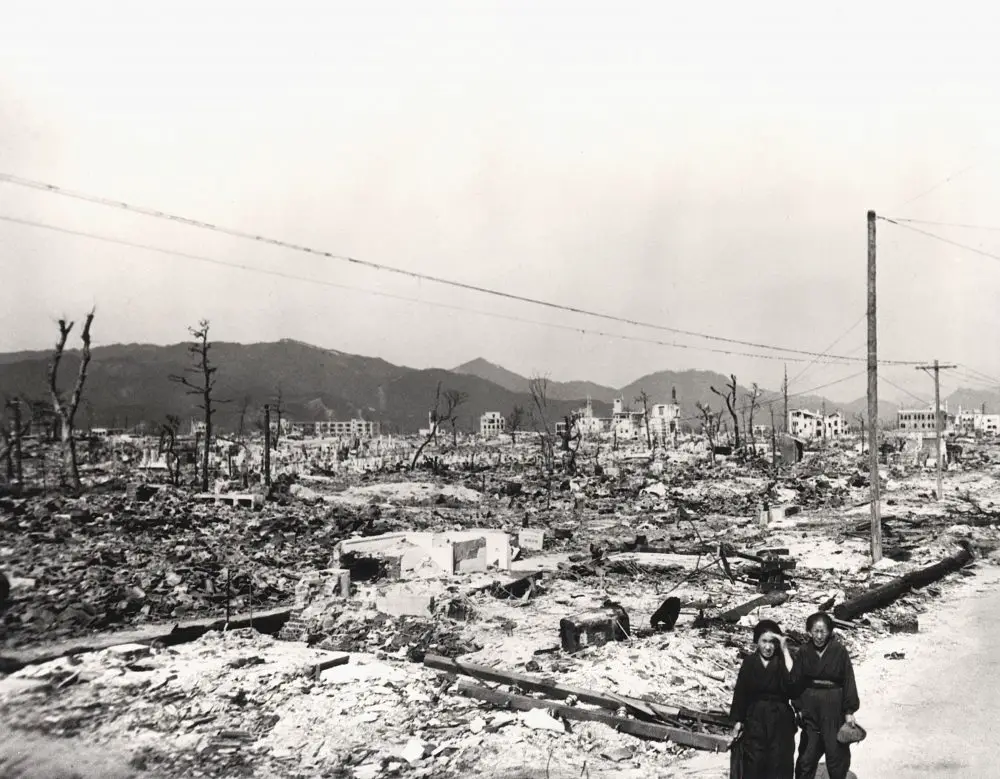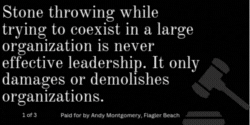
By Matt Lavine
Milton Rothmar, an American Army corporal stationed in Italy, got the news about the Hiroshima bombing from the Armed Forces newspaper Stars and Stripes. He wrote: “The headline said ‘Atomic Bomb.’ To a person who has been raised on stories such as The Final War, this was both a terror and a hope. Man could use this to destroy everything.”
But Rothmar couldn’t suppress his excitement at the prospect that atomic energies might be put to less destructive purposes: “Goddam but it is thrilling to hear the words ‘atomic energy’ used on the radio like they were talking about the latest model car. I feel like shouting to everybody ‘I told you so!’”
His reaction, written down the very day he heard the news, might seem oddly prescient: how did he so quickly understand all the implications and possibilities of what was supposed to be a top-secret weapon?
The answer is that he had been thinking about them for years – and so had many other Americans. The sudden appearance of a real atomic bomb was shocking, but its nature – and the implications of its use – had been talked about for decades. People grappling with the news of Hiroshima did so less by learning new information than by remembering things they had long known.
Fascinated by radioactivity
American newspapers were blaring headlines about Hiroshima within hours of the attack. They were based on an announcement from President Truman that began by describing the astonishing magnitude of the explosion – 2,000 times bigger than anything that had gone before – before explaining that this was possible because the bomb in question “is an atomic bomb. It is a harnessing of the basic power of the universe.”
The surprisingly effective secrecy surrounding the Manhattan Project meant that few were expecting an atomic bomb to appear during the current war. Many who helped make “Little Boy” – the bomb dropped on Hiroshima – possibly never knew what they were working on. But what Truman meant by “atomic bomb” was common knowledge.
Long before August 6 1945, the public had a clear (and surprisingly accurate) idea of the kind of destruction that a bomb based on the liberation of nuclear energies would be capable of. So many writers explored the idea that the early 20th century is sometimes called the “Radium Age” of science fiction. Prominent scientists wrote popular books on how to experiment with radioactive substances at home. It was a concept as widely known as the Star Trek warp drive might be today.
The result was an intense public fascination with nuclear energies. Crowds thronged museums to get a glimpse of a speck of radium, thrilled by what newspapers said was a fantastically powerful substance that “leaked” through radioactivity only a tiny fraction of the energy it stored. The great question of the age was whether scientists could find a way to tap that remaining energy, and – if they did – whether they could control it.
Opinions varied.
![]() The case for runaway atomic apocalypses was frequently made by the charter generation of nuclear scientists themselves. Radiochemist Frederick Soddy, in a popular series of lectures, imagined that nuclear energy would allow humanity to “make the whole world one smiling Garden of Eden” – and just as easily, with a single mistake, to destroy it.
The case for runaway atomic apocalypses was frequently made by the charter generation of nuclear scientists themselves. Radiochemist Frederick Soddy, in a popular series of lectures, imagined that nuclear energy would allow humanity to “make the whole world one smiling Garden of Eden” – and just as easily, with a single mistake, to destroy it.
Sci-fi to FDR
Radioactive substances attracted popular attention precisely because of those horrifying implications of their seemingly limitless energy. Even what were meant as dispassionate, educational treatments of the subject tended to become lurid.
As historian Spencer Weart has noted, the renowned British physicist William Crookes explained the energy in single gram of radium by saying that it was enough to lift the weight of the entire British navy several thousand feet. The unintentionally violent image of the explosive demolition of a military target caught on in the public discourse. It was the logical conclusion of everything else that the newspapers were printing about the fantastical energies locked away in the atom.
Fiction authors made those implications explicit.
H G Wells coined the term “atomic bomb” in his 1914 novel The World Set Free, which depicted a mid-20th-century war fought with radioactive bombs that exploded – and then kept exploding, poisoning the area with radiation. The novel was dedicated to Soddy, referencing his lectures, and indirectly contributed to real-world nuclear history: it inspired, for example, the physicist Leo Szilard to think about the implications of his theory of neutron chain reactions. Szilard later lobbied FDR to start research on a nuclear program.
Wells was neither the first nor the last author to explore the explosive potential of atomic energies. The comic books, pulp science fiction magazines, and popular science literature of the era were shot through with speculation about atom-powered spaceships and radium bombs and radioactive monsters who gave off mysterious rays.
Some were absurd flights of fancy; others were excellent synopses of current nuclear science. Both sorts had the same effect: to perpetuate the discussion about what the atomic future would look like.
That discourse was often quite optimistic – nuclear medicine and cheap electricity were on people’s minds, too – but bombs were always part of it.
Emotionally fraught
Oddly enough, atomic bombs were discussed more before the war began than during it, thanks in part to wartime paper restrictions that throttled some science fiction magazines.
The technical issues of building a fission weapon were common knowledge even before the war. Less openly talked about was the possibility that those obstacles might be overcome anytime soon. Military censors discouraged magazines from running stories about atomic bombs, although at least one canny publisher argued that they were so common a plot device that to suddenly banish them from print would be to signal the enemy that the United States was making progress on such a weapon.
The months following Hiroshima and Nagasaki were emotionally fraught for Americans: joy at the end of the war mixed uneasily with remorse at the magnitude of destruction and fear that such weapons might someday be used against them.
Atomic bombs and all their moral and technological implications were once again talked about in pulpits, cartoons, newspaper editorials and science fiction. But if it was a more urgent discussion now, it was nevertheless a familiar one.
![]()
Matt Lavine is Assistant Professor of History at Mississippi State University.
![]()
![]()




























Leave a Reply